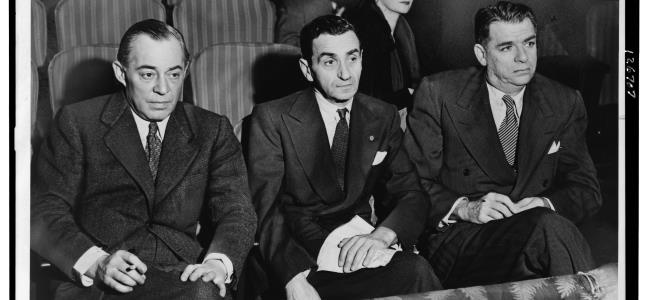In the acting business — the world where a lot of industry people can become your key to either success or failure, casting directors can sometimes be intimidating. When an actor walks into the audition room, they unconsciously start thinking of how to make a casting director happy. You would think that just coming in there and blowing them away with your magical performance would do the trick — and often that is the case — but other times, just a minor detail will become a determiner of an actor being cast or not.
15 Tips on Pleasing Casting Directors in Auditions
1. Never ever be late. Just as with 10 Tips on Pleasing Your Acting Teacher, first is to make sure to never be late for your audition. Showing up right on time is late already — be there at least half an hour in advance (you have lines to learn!)
2. No more apologies, for anything. Committing yourself to whatever you want to perform is showing your courage, so stay with it and do not apologize for whatever mistake you might have made. It just takes everybody’s time and shows that you’re insecure.
3. You’re there to perform. You’ve been invited to the audition — not forced to get there — as a guest. Come, do your job and enjoy yourself. If you’re obviously uncomfortable with what you’re doing, casting directors will be too.
4. Own the room. As soon as you enter, you must shine with self-confidence. Show the casting people that you’re there for a reason, that you know what you’re doing and that you will graciously accept the part because you’re the only one right for it. We discussed it on How to Have More Confidence At Auditions.
5. Do your homework before coming in. If you get anything in advance or you have your own monologue, lines, speech that you will have to perform during the audition — prepare a day in advance. Whatever method of preparation you’re using, be ready to unleash it.
6. Make no excuses for anything. Just as you shouldn’t apologize, you also should not make any excuses. Whatever happened, happened — move on, and do better next time. Learn from your mistakes.
7. Ask only valuable questions. Don’t waste everybody’s time making small talk and chit-chatting. Casting directors have been in that room — or will be — for a whole day; they do not have any desire to engage in meaningless conversations. However, if you really need to ask a question, never be afraid to do so. Be brief.
8. Focus on your partner. Whenever you have a partner in the scene reading with you, give them the credit. Don’t write them off to focus just on your own performance. Listen! Observe! Make your partner the focal point of the reading and your performance will improve as a result.
9. Always know what the text is about. You always have to know what’s happening in the scene, what your character is going through and what is going on around you. If any important to you details are unclear, and you believe that it might hinder your performance, do not hesitate to ask a question.
10. No miming and props. It’s pretty straightforward: casting directors hate that. Just keep it simple.
11. Know your lines. It depends on the way you prefer to audition. Some people learn everything, others — partially. The best way is to always know what is happening in the scene and vaguely know your lines. You can keep sides in front of you, but don’t hide your face in there either.
12. Learn how to move appropriately. Don’t go touching casting directors, or any furniture around. Being still isn’t a bad way to audition, you just have to learn how to engage your audience while performing this way. For on-camera auditions, see Difference Between Stage and On-Camera Auditions.
13. Never take anything personally. It’s all just business, and everybody in that room — including yourself — are there to work. You might be the greatest actor in the world, but sometimes you just don’t fit the part. Understand that casting directors have nothing against actors.
14. Make great choices and bring your personality. Half of the performance is about what is written in the character description, and the other half is all you. In order to walk out of that audition satisfied, you need to make some very specific, bold and interesting choices. Stand out and show your uniqueness.
15. Most importantly, be a creative and artistic actor. Show them that you are a professional performer. You know how to fill their needs and you know how to be professional about it. If your creativity is of the utmost importance to you, casting directors will see it and evaluate it accordingly.
Always remember that casting directors want actors to succeed just as much, if not more. They do not enjoy sitting the audition room for long hours and not finding something what they are looking for. Whenever you enter through that door, and you obviously fit the part, casting directors’ souls lit up and they start cheering for you. They hope you will deliver the best piece of work you can, and they will be there for you in case any appropriate help and guidance is required. Just be professional about it.
Casting directors are not your enemies. Respect them, but don’t fear them. They will be affected on the emotional level if you deliver what has to be delivered. Focus on your task at hand, and everybody in the room will thank and praise you for your honest efforts and professionalism.





